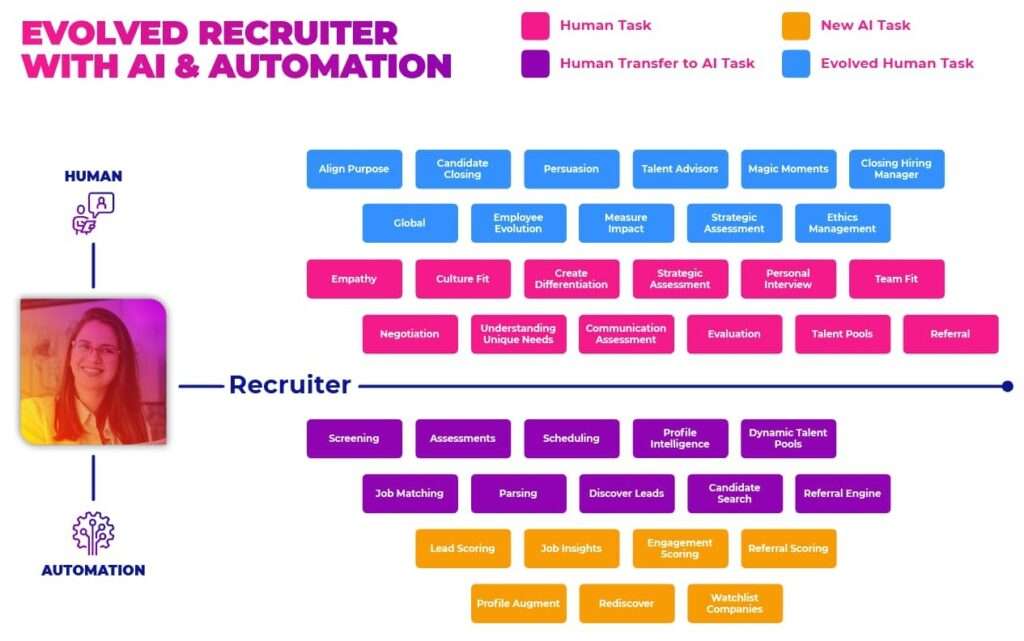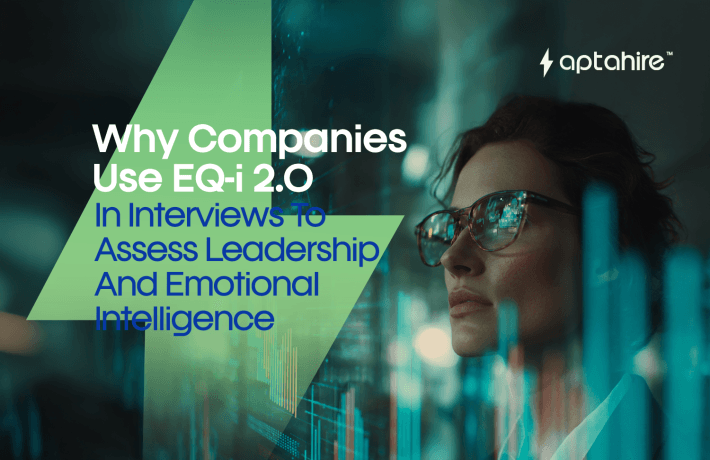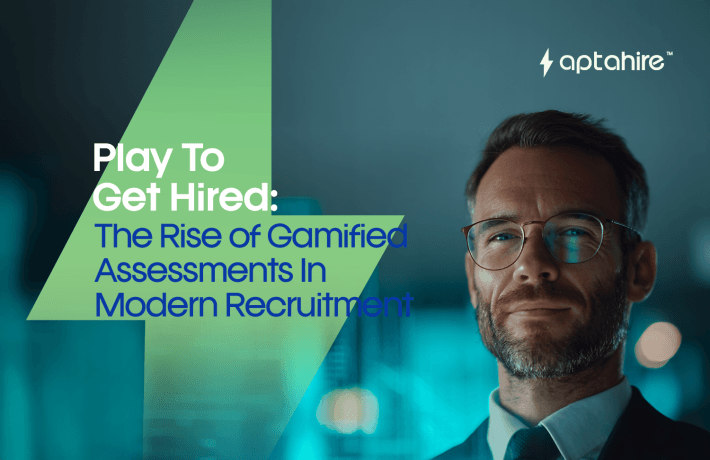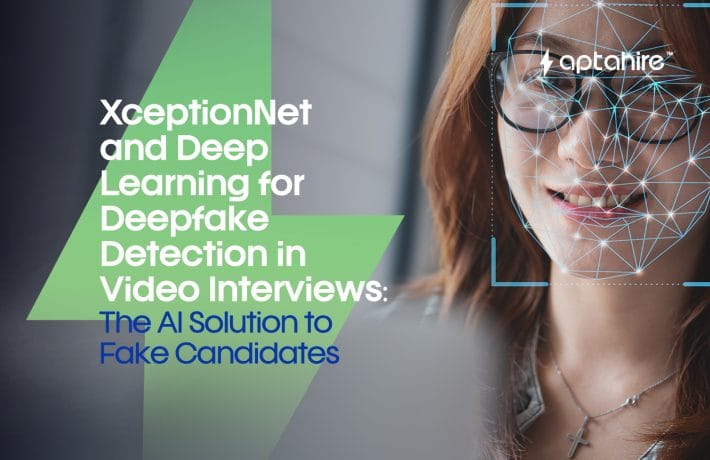The Impact of AI on Talent Acquisition: Key Insights for 2025

Introduction
Let’s talk about something that’s been transforming the hiring game- AI. If you’re in HR or talent acquisition, you’ve probably seen how artificial intelligence is changing the way we find, assess, and hire candidates. And trust me, it’s only getting bigger in 2025.
AI: Your New Hiring Assistant
AI in Talent acquisition isn’t here to replace recruiters; it’s here to make our lives easier. According to a recent LinkedIn report, nearly 67% of HR professionals believe AI has improved their hiring process by automating repetitive tasks like resume screening, interview scheduling, and even initial candidate assessments. Imagine the time saved!
Gone are the days of manually sifting through thousands of applications. AI-powered Applicant Tracking Systems (ATS) can now scan resumes in seconds, picking out the best-fit candidates based on skills, experience, and even cultural fit. And with AI-driven chatbots handling the first level of candidate interactions, recruiters can focus on building real, meaningful connections.

The Rise of Predictive Hiring
Recruitment is no longer just about experience and qualifications—it’s about potential. AI in Talent Acquisition can now analyze a candidate’s soft skills, problem-solving abilities, and even predict their likelihood of success in a role. Companies using AI-driven hiring tools have seen a higher improvement in employee retention rates because they’re making better hiring decisions upfront.
Plus, AI-powered assessments can evaluate not just what a candidate knows, but how they think. Platforms like Aptahire use algorithms that understand and evaluate the knowledge, voice, body language, skills, etc, helping employers make data-backed hiring decisions.
Key Insights:
Mastercard’s automated interview scheduling has significantly improved efficiency, benefiting both candidates and the internal team. Over 5,000 interviews were scheduled, with 88% set within 24 hours, reducing scheduling time by 85%. This has enhanced the candidate experience, streamlined internal processes, and minimized administrative workload, ultimately helping Mastercard secure top talent more efficiently.
Bias in Hiring: Can AI in Talent Acquisition Solve It?
One of the biggest challenges in recruitment automation is unconscious bias. AI promises to bring more fairness to the process by evaluating candidates based on skills and data rather than gut feeling. However, AI is only as unbiased as the data it’s trained on. It is said that HR leaders are concerned about AI inadvertently reinforcing existing biases in hiring innovations. That’s why it’s vital to use unbiased AI tools like Aptahire to hire the right talent for your organization based on skills.
The key? Regularly auditing AI-driven hiring tools and ensuring they are trained on diverse data sets. AI should assist human judgment, not replace it.
AI and the Job Seeker Experience
Let’s not forget the candidates. AI is streamlining the hiring automations process for them, too. Job seekers no longer have to wait weeks for a response; AI-driven systems can provide instant feedback, schedule interviews, and even offer personalized job recommendations. Companies using AI-powered recruitment tools have reduced their hiring time, making the process faster and more efficient for everyone involved.
Did you know?
62% of talent acquisition professionals say they are optimistic about AI’s impact on recruitment.
Challenges of AI in Hiring
AI is transforming recruitment, making hiring faster and more efficient. However, as HR professionals, we must navigate its challenges carefully. One major concern is bias, since AI learns from historical data, it can unintentionally reinforce existing biases if not properly managed. This can impact diversity and inclusion efforts. The good news? Bias in AI can be mitigated through regular audits, diverse training data, and continuous monitoring to ensure fair and objective decision-making.
Another challenge is AI’s inability to assess human qualities beyond data points. While it can efficiently screen resumes and analyze patterns, it doesn’t fully grasp soft skills, cultural fit, or long-term potential. That’s why human oversight remains crucial. The best approach is to use AI as a supportive tool rather than a decision-maker, allowing recruiters to make well-rounded hiring choices while leveraging AI’s speed and efficiency.
Data privacy is also a key concern. AI-powered hiring tools process vast amounts of candidate information, raising security and compliance challenges. However, with the right safeguards, such as strong data protection policies, clear transparency, and adherence to privacy regulations; these risks can be managed. Ultimately, AI can be a powerful asset in hiring when used responsibly, ensuring a fair, efficient, and secure recruitment process.
The Future: AI + Human Collaboration
So, what’s next? AI will continue to evolve, but the human touch will always be irreplaceable. The best recruitment strategies in 2025 will be a mix of AI-driven efficiency and human intuition. After all, while AI can assess qualifications, only a human can truly gauge passion, personality, and cultural fit.
At the end of the day, AI isn’t the future of recruitment, it’s the present. The question is, how will we use it to create smarter, fairer, and more effective hiring automation practices?
What’s your take on AI in talent acquisition? Let’s discuss in the comments!
FAQs
1. How is AI improving the hiring process?
AI enhances recruitment by automating tasks like resume screening, candidate matching, and interview scheduling. It helps recruiters save time, improve efficiency, and make data-driven hiring decisions.
2. Can AI completely eliminate bias in hiring?
AI can reduce human bias by focusing on objective criteria, but it is only as unbiased as the data it’s trained on. To prevent discrimination, companies must regularly audit AI tools and ensure diverse and inclusive training data.
3. How does AI improve candidate experience?
AI-powered chatbots and scheduling tools offer faster responses, streamline communication, and speed up hiring timelines. For example, Mastercard reduced interview scheduling time by 85%, with 88% of interviews booked within 24 hours.
4. Will AI replace human recruiters?
No, AI is a tool to support recruiters, not replace them. While AI can handle repetitive tasks, human intuition is still crucial for assessing cultural fit, interpersonal skills, and making final hiring decisions.
5. What are the biggest challenges of using AI in recruitment?
Challenges include potential bias in AI algorithms, over-reliance on automation, data privacy concerns, and the need for continuous monitoring. Companies must balance AI’s efficiency with human oversight to ensure fair and effective hiring.



